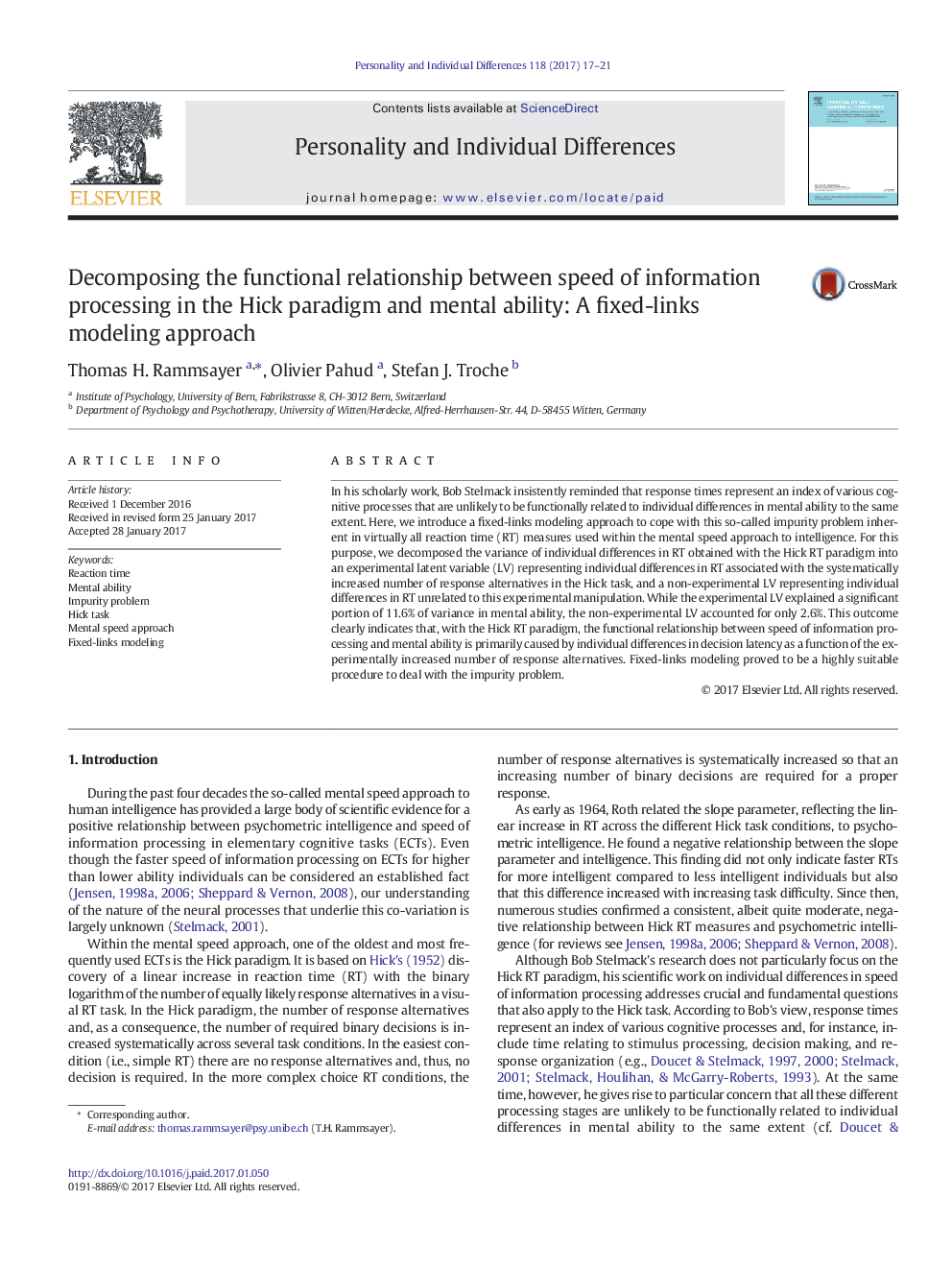ترجمه فارسی عنوان مقاله
تقسیم رابطه عملکردی بین سرعت پردازش اطلاعات در پارادایم هیک و توانایی ذهنی: یک رویکرد مدل سازی لینک ثابت
عنوان انگلیسی
Decomposing the functional relationship between speed of information processing in the Hick paradigm and mental ability: A fixed-links modeling approach
| کد مقاله | سال انتشار | تعداد صفحات مقاله انگلیسی |
|---|---|---|
| 157111 | 2017 | 5 صفحه PDF |
منبع

Publisher : Elsevier - Science Direct (الزویر - ساینس دایرکت)
Journal : Personality and Individual Differences, Volume 118, 1 November 2017, Pages 17-21
ترجمه کلمات کلیدی
زمان پاسخ، توانایی ذهنی، مشکل ناشتا، وظیفه هیک، رویکرد سرعت روانی، مدل سازی لینک ثابت،
کلمات کلیدی انگلیسی
Reaction time; Mental ability; Impurity problem; Hick task; Mental speed approach; Fixed-links modeling;

